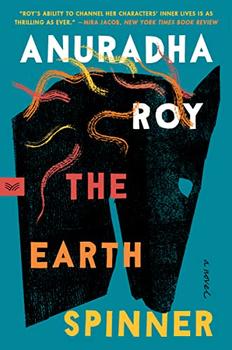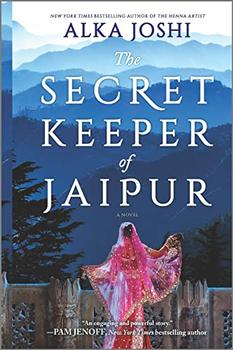Summary | Excerpt | Reading Guide | Reviews | Beyond the book | Read-Alikes | Genres & Themes | Author Bio

Gorgeously tactile and sweeping in historical and socio-political scope, Pushcart Prize-winner Madhuri Vijay's The Far Field follows a complicated flaneuse across the Indian subcontinent as she reckons with her past, her desires, and the tumultuous present.
In the wake of her mother's death, Shalini, a privileged and restless young woman from Bangalore, sets out for a remote Himalayan village in the troubled northern region of Kashmir. Certain that the loss of her mother is somehow connected to the decade-old disappearance of Bashir Ahmed, a charming Kashmiri salesman who frequented her childhood home, she is determined to confront him. But upon her arrival, Shalini is brought face to face with Kashmir's politics, as well as the tangled history of the local family that takes her in. And when life in the village turns volatile and old hatreds threaten to erupt into violence, Shalini finds herself forced to make a series of choices that could hold dangerous repercussions for the very people she has come to love.
With rare acumen and evocative prose, in The Far Field Madhuri Vijay masterfully examines Indian politics, class prejudice, and sexuality through the lens of an outsider, offering a profound meditation on grief, guilt, and the limits of compassion.
The Far Field portrays the heroic quest of a flawed and enduring heroine seeking her purpose in a difficult world, and bears witness to complicated political injustices and territorial disputes in contemporary Jammu and Kashmir...continued
Full Review
(973 words)
This review is available to non-members for a limited time. For full access,
become a member today.
(Reviewed by Karen Lewis).
 In Madhuri Vijay's novel The Far Field, characters speak a variety of languages: Hindi, Kashmiri, English, Tamil and Urdu. India has a shimmering history as the crossroads of civilizations and cultures, so it's not surprising that its inhabitants speak many languages. The constitution of India recognizes 22 official languages, but a 2011 census reveals that there are more than 121 different mother-tongue languages spoken by at least 10,000 people, with quite a few other languages used by smaller numbers of native speakers.
In Madhuri Vijay's novel The Far Field, characters speak a variety of languages: Hindi, Kashmiri, English, Tamil and Urdu. India has a shimmering history as the crossroads of civilizations and cultures, so it's not surprising that its inhabitants speak many languages. The constitution of India recognizes 22 official languages, but a 2011 census reveals that there are more than 121 different mother-tongue languages spoken by at least 10,000 people, with quite a few other languages used by smaller numbers of native speakers.
The 22 languages recognized by India's national constitution are: Assamese, Bengali, Gujarati, Hindi, Kannada, Kashmiri, Konkani, Malayalam, Manipuri, Marathi, Nepali, Oriya, Punjabi, Sanskrit, Sindhi, Tamil, Telugu, ...
This "beyond the book" feature is available to non-members for a limited time. Join today for full access.

If you liked The Far Field, try these:

by Anuradha Roy
Published 2023
From the critically acclaimed, Booker Prize-nominated author of Sleeping on Jupiter and All the Lives We Never Lived, an incisive and moving novel about the struggle for creative achievement in a world consumed by growing fanaticism and political upheaval.

by Alka Joshi
Published 2022
In New York Times bestselling author Alka Joshi's intriguing new novel, henna artist Lakshmi arranges for her protégé, Malik, to intern at the Jaipur Palace in this tale rich in character, atmosphere, and lavish storytelling.
These are not books, lumps of lifeless paper, but minds alive on the shelves
Click Here to find out who said this, as well as discovering other famous literary quotes!